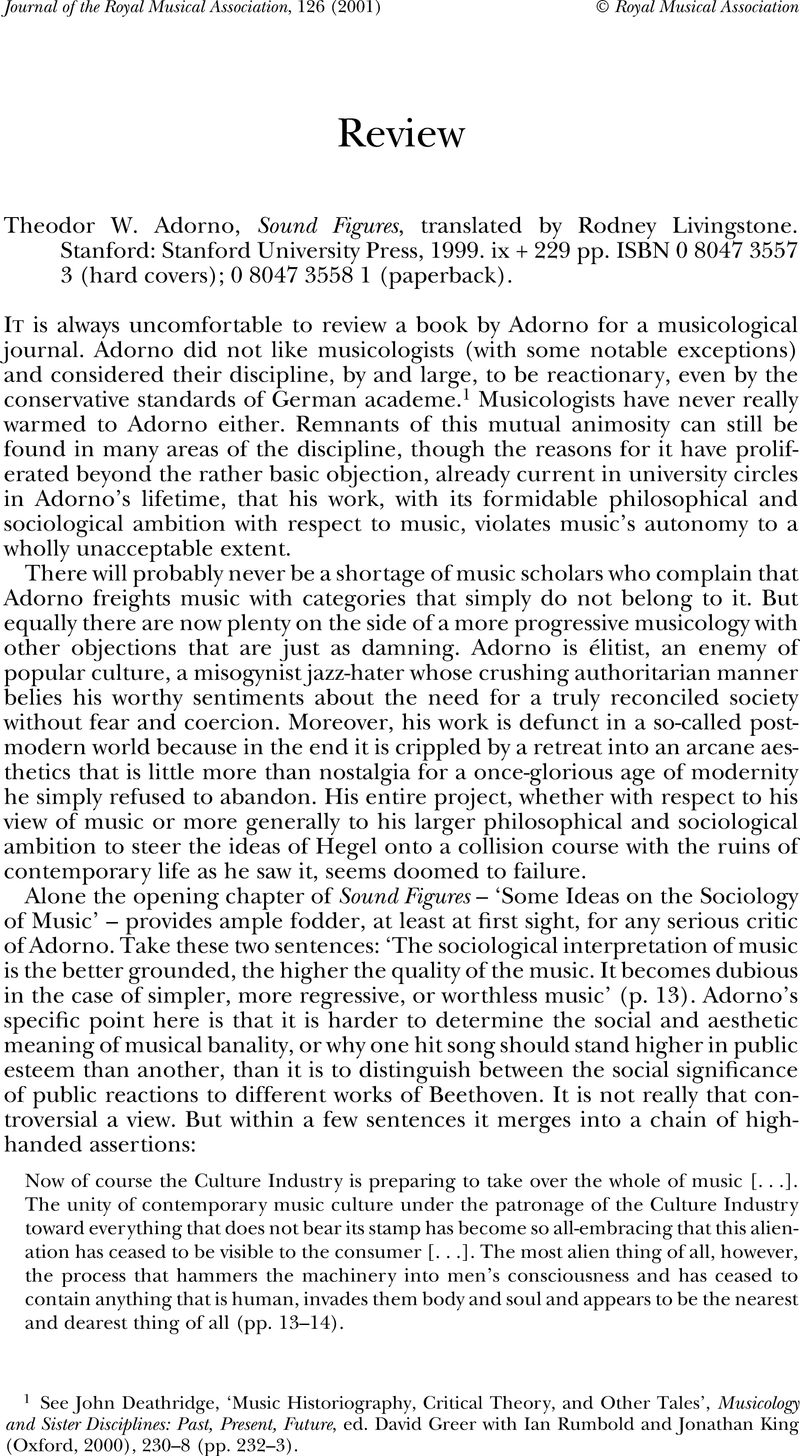No CrossRef data available.
Published online by Cambridge University Press: 01 January 2020

1 See Deathridge, John, ‘Music Historiography, Critical Theory, and Other Tales’, Musicology and Sister Disciplines: Past, Present, Future, ed. David Greer with Ian Rumbold and Jonathan King (Oxford, 2000), 230–8 (pp. 232–3).Google Scholar
2 So far the only English translation is Philosophy of Modern Music, trans. Ann G. Mitchell and Wesley V. Blomster (New York, 1973). It is, however, seriously misleading in too many places to be regarded even as a reasonably faithful rendering of the original. The translation of the title alone is questionable: the replacement of ‘new’ by ‘modern’ overlooks the specific resonance the phrase ‘new music’ had for Adorno. Indeed, the more general term ‘modern music’ usually has pejorative implications in his texts since it includes the ‘moderately’ modern music he rejected as philosophically peripheral.Google Scholar
3 Max Horkheimer and Theodor W. Adorno, Dialectic of Enlightenment, trans. John Cumming (New York, 1972).Google Scholar
4 Jarvis, Simon, Adorno: A Critical Introduction (Cambridge and Oxford, 1998), 87.Google Scholar
5 Adorno, Theodor W., Introduction to the Sociology of Music, trans. E. B. Ashton (New York, 1976), 2.Google Scholar
6 Ibid., 10.Google Scholar
7 Cited in Jarvis, Adorno, 88.Google Scholar
8 Robinson, J. Bradford, ‘The Jazz Essays of Theodor Adorno: Some Thoughts on Jazz Reception in Weimar Germany’, Popular Music, 13 (1994), 1–25.CrossRefGoogle Scholar